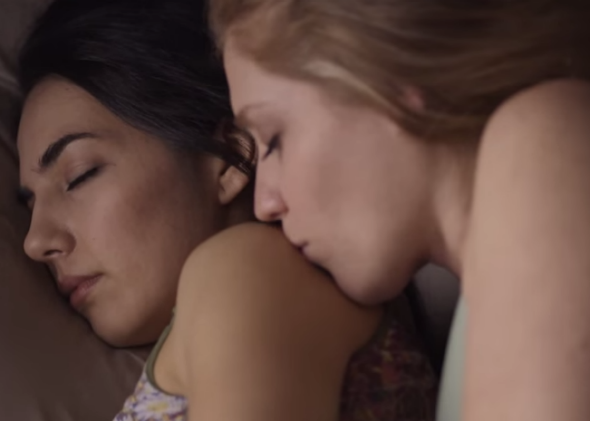Richard Blanco, who rose to fame (or literary fame, anyway) as the poet at President Obama’s 2013 inauguration ceremony, hasn’t yet married his partner of 14 years—but based on a poem and accompanying video just released, it’s clear he deeply understands the importance of marriage equality.
Blanco’s poem, titled “Until We Could,” acts as both a beautifully observed portrait of same-sex intimacy and a sweeping survey of the gay rights movement from the “founding mother-fathers at Stonewall” to the still-reverberating triumph of Windsor. The advocacy group Freedom to Marry commissioned the poem in honor of the tenth anniversary of marriage equality in Massachusetts (as well as its own decennial), and it was so well-received that the group decided to pursue visual accompaniment.
The Daily Beast’s Tim Teeman reported on the creation and release of the poem and its video, which was directed by David Lowery and Yen Tan and includes voiceover work from Ben Foster and Robin Wright, calling the pair “a romantic and realistic vision of coupledom.” Teeman continues:
The video for “Until We Could” shows families getting ready for the day: shoelaces being done up, children at the table, cups of coffee, a loved one in hospital and dying, loving glances—everything about the lesbian and gay love on display is the same as the straight, but—as the poem reiterates—“still we couldn’t.”
Blanco’s words—phrases like “I do until our eyes/ become voices speaking without speaking, until/ like a could meshed into a cloud, there’s no more/ you, me—our names useless”—are, to my taste, more poignant than the golden-lit images in the video. But it’s undeniable that they work together as a powerful argument for the fundamental injustice—indeed, illogic—of marriage discrimination. If someone in your life still needs a little convincing on this point, give the poem a try: I suspect Blanco’s poetic exploration of “couldn’t,” grounded as it is in the heart, may be more effective than anything based in the head.
